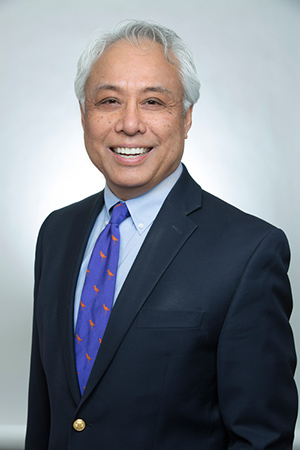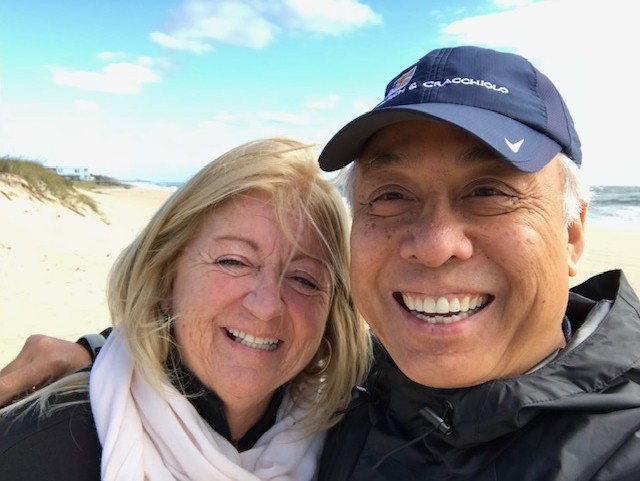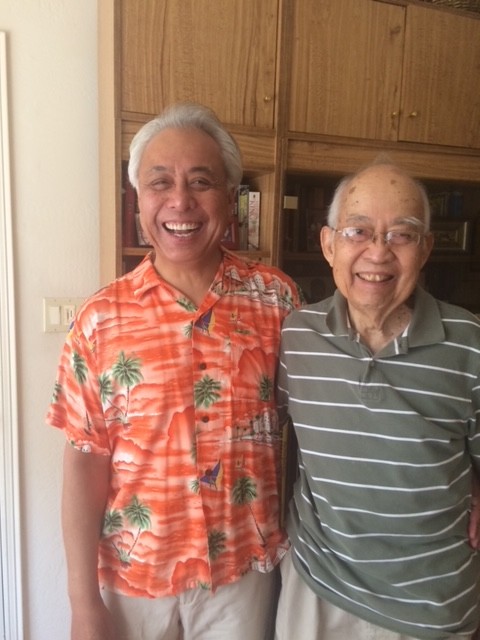This article by Brian Cox was originally published on the Primerus Weekly blog.
 Whenever attorney David Villadolid takes on a new client, he likes to ask if he can visit the business and get an idea of how it operates. The request is often met with a mix of surprise and appreciation.
Whenever attorney David Villadolid takes on a new client, he likes to ask if he can visit the business and get an idea of how it operates. The request is often met with a mix of surprise and appreciation.
“Clients take pride in their business and love to talk about what they do,” says the senior partner in the Employment Law Section at Burch & Cracchiolo, P.A. in Phoenix. “An on-site visit helps me understand their needs and I develop more of a relationship with them.”
For Villadolid, that kind of hands-on communication is one of the most enjoyable parts of his practice. Familiarizing himself with a client’s business from the inside is an exercise Villadolid developed early on at Burch & Cracchiolo, which he joined in 1987.
For 15 of his 36 years at the firm, Villadolid worked as the outside general counsel for Empire Southwest, a Caterpillar dealer with operations throughout Arizona and across the region. The company serviced a range of industries, including mining, agriculture, construction, and power systems. In a special arrangement, Villadolid worked on-site at the dealership, which afforded him an invaluable perspective on the company’s procedures, personalities, and priorities.
“I think it was hugely beneficial to my career and my understanding of working with a client,” says Villadolid, who believes that seeing a client’s legal complications strictly from within the confines of the law office can often create a skewed view. “Inside the company, you can see that legal issues are such a small fraction of the client’s day-to-day business and what they’re trying to do.”
Villadolid adopted a philosophy that he learned from the Caterpillar dealer’s chief financial officer, who often said that instead of an MBA, he had an MBWA – “Management By Walking Around.”
“It was always great to get away from my desk,” says Villadolid. “I found out that a lot of times, I’d take a walk around the dealership and be stopped by somebody with a question or an issue.”
Though he’s lived in Arizona for more than three decades, Villadolid is a New York transplant. Born in Manhattan, he grew up mostly on Long Island where his father was an ophthalmologist and his mother a dietitian. His parents emigrated from the Philippines in 1953 and married two years later. After marrying, the young couple eventually settled on Long Island where Villadolid’s father established his practice as an eye surgeon.
Watching his father’s practice grow in conjunction with the community he was serving influenced Villadolid’s own decision years later as a young attorney to move from New York to Phoenix where he felt the region’s prospects for growth might help his developing practice.
“Part of my thinking was that my dad’s practice really grew and benefited from being in a growing community and so maybe Phoenix might have similar opportunities,” says Villadolid.
Law was not Villadolid’s first career choice. Initially, he had his sights set on becoming a doctor after graduating from a boarding school in Connecticut. But when he ran up against organic chemistry at Dartmouth College, Villadolid decided a shift in plans was necessary. He completed a degree in English and then spent a year working at Bloomingdale’s before getting work as a paralegal in New York City, which he did for another year before taking the LSAT and enrolling at Georgetown University Law Center in Washington, D.C.
It was while working in the deli at Bloomingdale’s that he met his future wife, Nancy, who was an assistant buyer in the Men’s Department at the time. He sold her a cookie and five years later the young couple married, in 1982, after he had earned his law degree from Georgetown.
Villadolid spent the beginning of his career as an associate at the law firm of Hogan & Hogan on Long Island. After five years, he was ready to look elsewhere for broader opportunities for growth. He and Nancy decided to venture out on their own, and Phoenix was beckoning as a land of promise. Villadolid explored the possibility of making a big move.

“I came out here with the question of what opportunities were available,” says Villadolid, who at the time was licensed to practice in Connecticut, New Jersey, and Florida as well as New York and Arizona. “I wasn’t initially looking for a job. I just wanted to talk.”
It turned out to be a fruitful approach because the feelers he put out led to three offers. While one position came with a higher salary, Villadolid liked the people better at Burch & Cracchiolo. He talked it over with his boss in New York, Tom Hogan, who advised, “It’s the people, David. It’s always the people.”
Villadolid followed that advice and he’s never regretted the decision.
“I’ve been here ever since,” he says. “They haven’t been able to get rid of me. I have great friends here, and we take pride in doing excellent work.”
Villadolid is not unique in his longevity at Burch & Cracchiolo, which boasts many attorneys and staff who have been with the firm for decades.
“This is a place where people want to stay and practice,” says Villadolid. “We really try to keep it one happy family. We don’t keep a sharp distinction between staff and attorneys.”
The firm’s emphasis on mutual respect creates a social culture that comes from the top down, says Villadolid, returning again to the management lesson he learned from the Caterpillar executive.
“I really believe you have to walk the walk and not just have policies in place,” he says. “Things are decided by consensus. Maybe that takes a little longer, but we think it’s worth it.”
The firm’s culture is intentional and “top of mind.”
Villadolid points to the appointment earlier this year of senior partner Susie Ingold as the first female president in the company’s 54-year history, as an important message to the firm’s employees and the wider community, that the Phoenix firm is committed to growth and diversity.
When Villadolid first joined the firm, he was originally interested in zoning and land development cases, but most of that work quickly dried up in the economic crisis that followed the October 1987 stock market crash known as “Black Monday.” As a result, Villadolid found himself handling a lot of litigation arising out of bank failures and the savings and loan crisis.
In Villadolid’s experience, litigation in Arizona has proved far less nasty and cutthroat than in New York, which he attributes to the state’s adoption of rules that require both parties to disclose all evidence.
“The rules that make all parties focus on the facts and on the merits is really the way to go,” says Villadolid. “Things move faster. There are fewer fights. I believe that’s the way it should be done.”

He learned quickly that the “case always belongs to the client” and he has always worked hard to stay in communication with them.
“You always have to let the client know what you’re doing,” he says, quoting a piece of wisdom he learned from one of the firm’s founding partners, Dan Cracchiolo, who said, “It’s easy to keep a client when you win. The bigger challenge is when you lose.” Villadolid explains: “Have you talked with the client and explained the judge or jury’s decision? Do they understand the facts and the challenges and that you did the best you could? Have you offered them options? Many times, it’s about how to take a difficult situation, turn a corner, and start engaging in creative problem solving.”
Even after more than 40 years of practice, Villadolid says he still finds satisfaction and enjoyment in advising companies, executives, and management on a broad spectrum of business and employment issues, including compliance with state and federal laws and regulations.
“I really like the long relationships I have with my clients, learning about their businesses, and helping them succeed,” he says. “I enjoy helping them avoid problems, and sometimes when it’s already too late, helping them get out of problems.”
He welcomes the challenge of figuring out ways to help employers understand that employees are their most valuable asset and that complying with the rules is smart business and will eventually make money. He encourages and emphasizes the importance of the education and training of employees.
“If you have a happy work force that is pulling together, you’re going to be so much more profitable,” he tells his clients. He also tells them, “It’s better to have a 5-minute conversation before something happens so that you can do your best to avoid problems or potential litigation.”
He jokes that his goal is to educate his clients about how to deal with employment issues so that they don’t have to call him as often in the future.
Villadolid and his wife Nancy have two children. Their daughter Jamie, born a year after they moved to Arizona, lives in New York City where she works for an executive talent search company. Their son, Jake, creates video game trailers for a company in Los Angeles and also writes and directs his own projects.
Away from the office, Villadolid enjoys cooking, which he’s been doing since he was 12 and his mother insisted one summer that he and his siblings be responsible for dinner one day a week. He continued to cook throughout law school and a few years ago, he and other attorneys in the firm helped organize a gourmet club that would move from house to house. He and his wife enjoy throwing dinner parties. At Thanksgiving, he is always asked to make a stuffing inspired by pepperoni pizza. And during the COVID pandemic, like many others, he took up bartending.
Since 1996, he and Burch & Cracchiolo have provided pro bono legal services to Brophy College Prep, an all-boys Jesuit high school where Villadolid has served under three school presidents.
“It’s a wonderful institution,” says Villadolid, “and I like working behind the scenes to make sure that everything runs smoothly.”
Looking back on the development of his practice, Villadolid says he is struck by a similarity he shares with his father, who passed away in 2020.
“My dad really enjoyed the relationships he had with his patients, and many of his patients became his friends,” explains Villadolid. “My dad had a great bedside manner, and I really enjoy learning about and counseling my clients. So, in that sense, I’m doing the same thing as my dad.”
